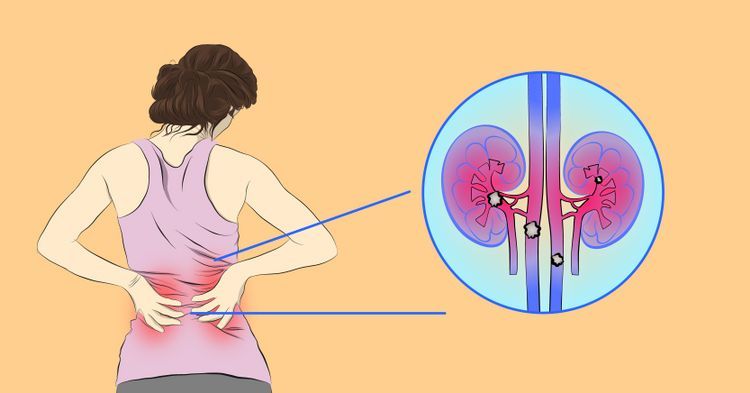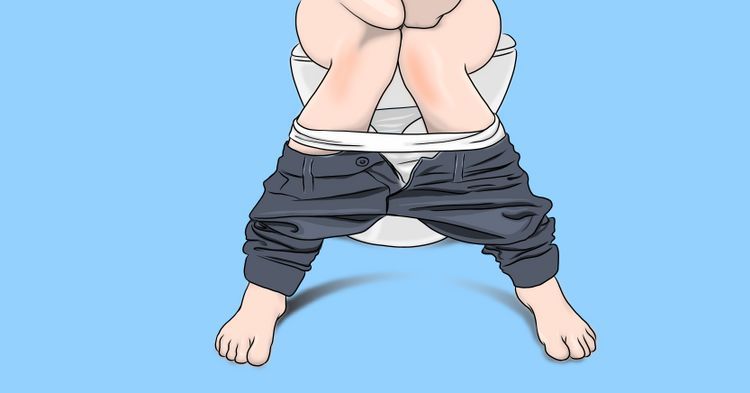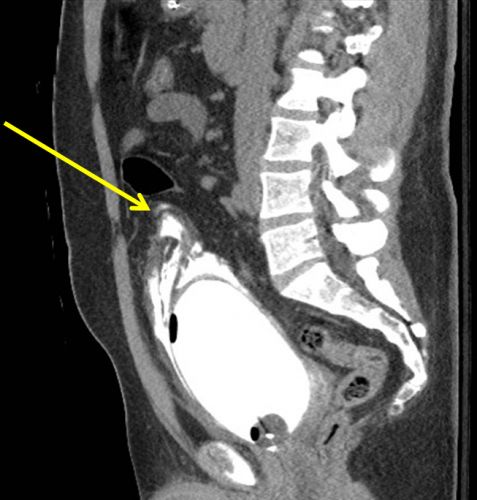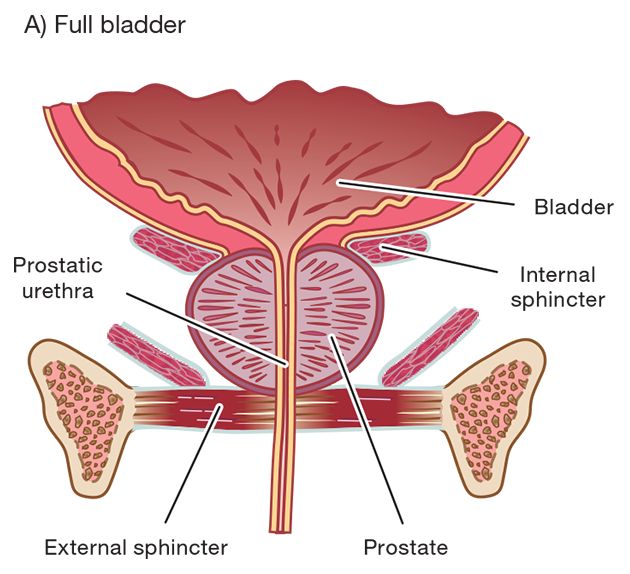When Mother Nature calls, we try our best to make a beeline to the bathroom, but sometimes it's impossible.
Whether we're on a bus or in a business meeting, when our body tells us we've got to go, it's in our best interest to follow its orders, or end up with a stinky stain down our pants.
According to Sachin Malde, a consultant urological surgeon at LycaHealth, the average person's bladder can hold about 500ml of pee before we "feel the strong desire to pass urine."
"During this time, the urinary sphincter muscle is closed, preventing urine leaking out," he told Metro.
"Once the bladder is full, nerve messages pass from your bladder to your brain telling it that you need to pass urine. When socially convenient, the brain passes messages back to allow your sphincter muscle to open and your bladder to squeeze the urine out."
But embarrassment isn't the only reason we should empty our bladder, because holding in our urine can cause some serious health problems.
1. Urinary Tract Infection
If you've ever had a unrinary tract infection (UTI) you'll know there's nothing fun about it.
They can be painful around the pelvis and stomach and make you feel like you need to pee all the time - even if you don't.
"Whether you are male or female, if you continually hold the urine in for long periods of time throughout the day it can lead to a number of longer-term problems," Malde said.
"Firstly, it allows bacteria within the bladder to multiply and therefore increases the chances of developing a urinary tract infection which can cause pain and bleeding."
While both genders can potentially develop a UTI, women are at greater risk compared to men, due to having a significantly shorter urethra by 11 to 16 cm.
2. Bladder Rupture
Although unlikely, a person who holds in their pee can have a bladder rupture, which if considered serious may require an operation to have the urine drained out.
"While this is quite rare, it's still possible it could occur," Robert Glatter, M.D., an assistant professor of emergency medicine at Northwell Health and attending emergency physician at Lenox Hill Hospital told Bustle.
"This usually occurs in the setting of prior bladder injury or scarring from surgery or past inflammation."
3. Kidney Stones

If you've been lucky enough never have to experience kidney stones in your life, you should know this condition occurs when the waste in your blood form crystals, which will continue to grow.
You can develop kidney stones by holding in your urine and failing to drink enough water, with symptoms including aches in your lower back, nausea, blood in your urine, and a painful time peeing.
While most stones can (painfully) pass when you go to the washroom, serious cases will require surgery.
4. Bladder Stretching
Although having your bladder stretch may sound like a positive thing, this scenario does more harm than good.
Think about a water balloon, the more liquid you put in it, the bigger it will become. However, it'll become equally as weak too.
While Healthline explains that your bladder cannot shrink once it's expanded, there are treatment options to prevent it from getting worse.
5. Your Sphincters Close
If you hold onto your pee for too long, it can put added pressure on your bladder, which can result in damage to your urinary sphincters.
The urinary sphincters allow your urine to exit the body, and if you hold it in for too long, when it comes time to pee, your body won't release all of the pee out.
"This can prevent it from fully opening when you actually decide to pass urine," Sachin said.
"This will stop you from being able to fully empty the bladder when you do pass urine, and again this urine build-up in the bladder can lead to infections."
"In less common cases, holding on for too long can over-stretch the bladder, leading to complete retention of urine and, rarely, can cause kidney damage."
So next time you feel you have to go, heed our warning and go!
How long do you typically hold in your pee? Let us know in the comments!






